Graham Reid | | 3 min read
Magazine: Shot by Both Sides (single version)

If there was a godfather of the Manchester scene in the Eighties there's a good case to be made that it wasn't Tony Wilson (who founded the Hacienda and Factory Records) but that it was Howard Devoto, singer and songwriter for Magazine, the band he formed in 1977.
In that crucial year Devoto promoted the two local concerts by the Sex Pistols (poorly attended but hugely influential) and had been the first version of the Buzzcocks with his friend Pete Shelley.
Devoto quit the Buzzcocks before their Spiral Scratch EP came out but was still writing with Shelley and "managing" the band. The split had been amicable and basically "Howard was at college," Shelley said later, "and he'd been told that if he didn't complete the work he'd be throwing the last three years away".
So Devoto hit the books again -- but still kept his hand in the music scene and formed Magazine with bass guitarist Barry Adamson, keyboard player Dave Formula, drummer Martin Jackson and guitarist/saxophonist John McGeogh.
That was the line-up that arrived for this, their debut album, although in an earlier incarnation the keyboard player had been Bob Dickinson who co-wrote Motorcade, which would appear on the album.
But before that would come the single Shot By Both Sides based around a Shelley riff that he would later use for the Buzzcock's Lipstick. That single announced a band which was immediately "post-punk" with its swagger and intellectual depth.
Prompted by the divisive street politics of the day, Shot By Both Sides captures the anger of a man in the middle trying to be an individual. Devoto poured himself into it.
By the time they came to record Real Life, the band was brimming over with ideas and although all the lyrics are by Devoto -- and on some songs he gets a co-credit -- McGeogh, Formula and Adamson also were given writing credits.
Magazine were earnest to the point of being severe (when they mimed Shot By Both Sides on Top of the Pops in February '78 Devoto was in pale-face in make-up and stood perfectly still) and Real Life is saturated in dark energy. As much attention would be paid to Formula's keyboards and McGeogh's guitars as it was to Devoto's declamatory and puzzling lyrics.
The album turned up in many "best of the year" lists, it was certainly in mine.
At the time I wrote, rather pretentiously, that in the preface to Yehudi Menuhin's biography the critic George Steiner said, "The ordinary man casts a shadow, the man of genius casts light." I noted that "Howard Devoto, mainman of Magazine, has written a track on Real Life entitled The Light Pours Out of Me. It's tempting to link these two points, and so I just have".
Silliness obviously -- but even thirtysomething years on Real Life has a compelling power, much of it, as Allen Jones noted in Melody Maker, derived from the startling clarity of John Leckie's production.
The music was propulsive and grand, abrasive yet polished, Devoto's lyrics were macabre and preoccupied with death, madness, paranoia and altered states of unease.
Melody Maker's reviewer opened his piece by hailing at as "the best and most exciting album I've heard this year" and closed by saying "No one that has the slightest interest in the present and future of rock'n'roll should rest until they've heard Real Life. I'm still staggered, but I have no doubt of this album's absolutely awesome quality".
So what is so impressive?
Real Life was a compete departure from the template of fury laid down by the Sex Pistols, the bright and urgent pop of the Buzzcocks and the politicised rants of the Clash.
It was cinematic in scope and the musicians were technically impressive, but as befitted the punk period they didn't let that get in the way of imbuing the songs with taut energy and tensile strength.
The synthesizers and guitars interlock and overlap: Shot By Both Sides was re-recorded and has a more immediate and apocalyptic impact with Devoto sounding aggressive and subversive; Motorcade alludes perhaps to the Kennedy assassination (can anyone hear that word without thinking of it?); The Great Beautician in the Sky opens with a demented fairground sound; and McGeogh's saxophone squirts and irritates in the manner of Andy MacKay in Roxy Music.
In fact Real Life is closer to Roxy Music's early albums than much else in punk and post-punk at the time. But a Roxy Music pumped up on punk energy and fronted by a misanthrope.
Yet it isn't all tense. Parade by Adamson and Formula which closes the album is an eerie cabaret ballad.
It is a fitting coda to one of the most impressive debut albums of the era.
Their follow-up Secondhand Daylight didn't quite cut it but they recaptured the magic for the very different sounding album The Correct Use of Soap in '80 (which could equally be an Essential Elsewhere album).
McGeogh quit and joined Siouxsie and the Banshees where he enjoyed greater guitar freedom and commercial success; and Adamson went on to Visage (with Formula) and the Birthday Party then became a Bad Seed with Nick Cave.
Devoto -- an awkward fucking-cuss as I discovered when I interviewed him in '80 -- formed Luxuria. He appeared as a bathroom cleaner in 24 Hour Party People who watches the Devoto character having sex with Tony Wilson's wife.
He denies it actually happened. As you would.
But as interesting as these subsequent careers were, it is on Real Life where their individual talents merged into something that was thrilling, menacing and sometimes beautiful.
And which still delivers all these decades on.
Play loud.
These Essential Elsewhere pages deliberately point to albums which you might not have thought of, or have even heard . . .
But they might just open a door into a new kind of music, or an artist you didn't know of. Or someone you may have thought was just plain boring.
But here is the way into a new/interesting/different music . . .
Jump in.
The deep end won't be out of your depth . . .

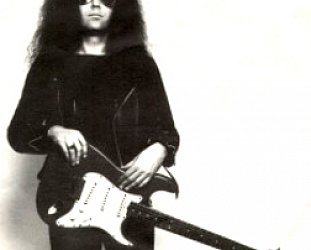
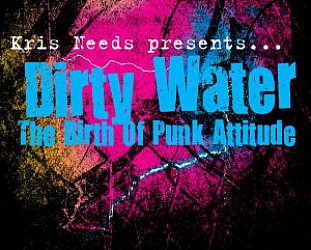
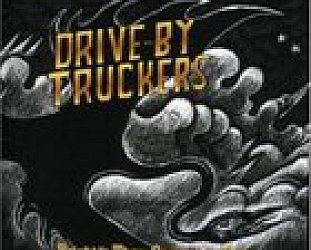
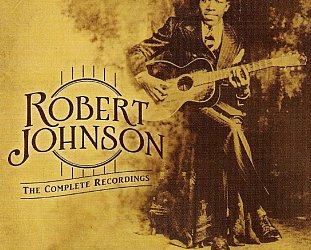
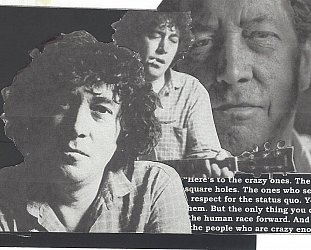
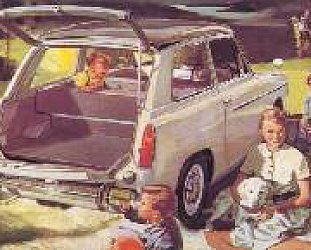
post a comment